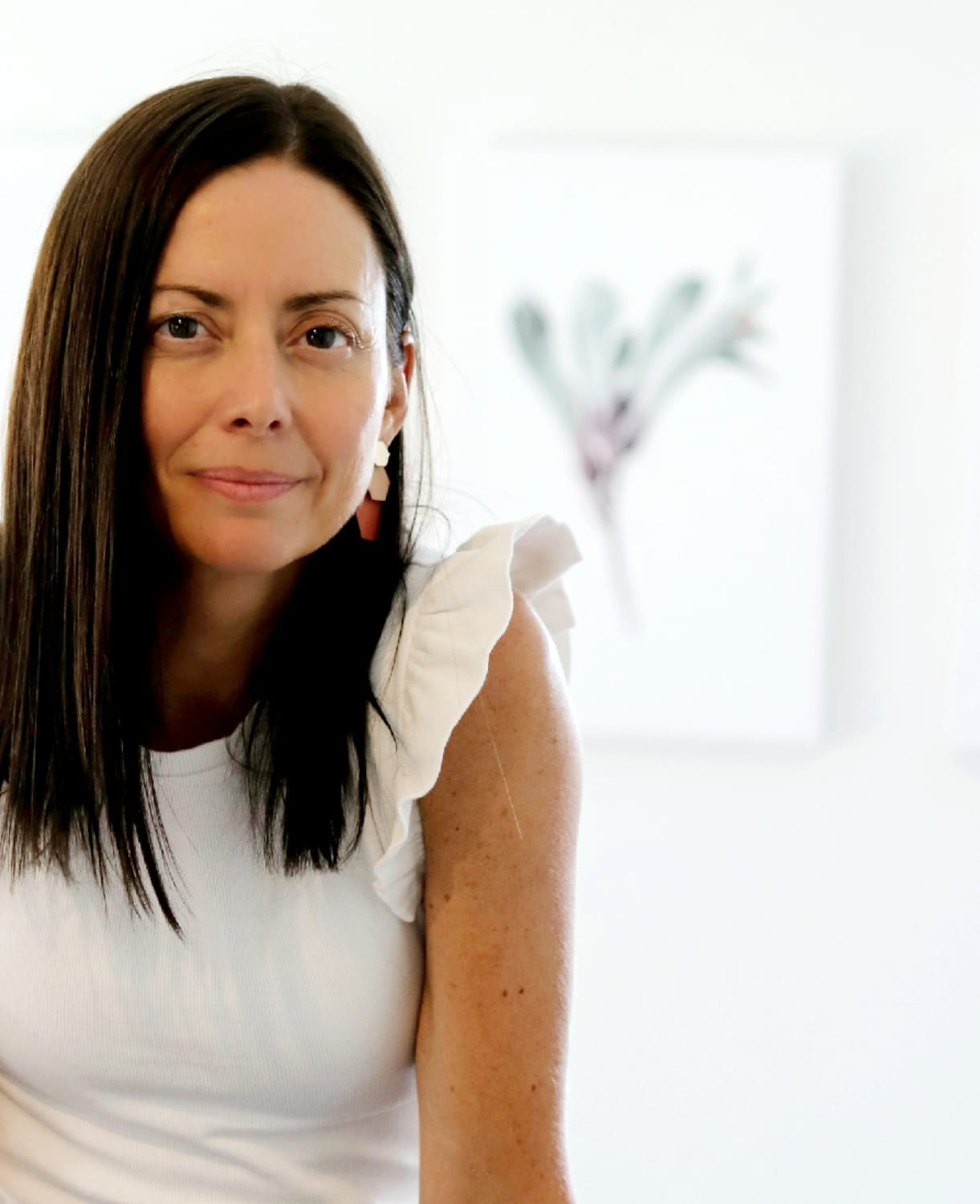Don't quit just yet: Strategies to overcome exhaustion at work (Part 2)
If you haven't yet, read Part 1 here.
If you are feeling emotionally drained, physically exhausted, and overwhelmed at work, you’re not alone. 50% of the Austrlian workforce is feeling the same way.
In part 1, I presented two important steps to help reduce the overwhelm around work:
1. Boost and showcase your personal values
2. Nail your life vision and design powerful goals
Wowzer, they do sound like huge steps, hey!? I promise there are fun and accessible methods to get clear on your values, vision and goals though, and that it will give you so much clarity on what you're doing and where you're going, you will NEVER regret taking the time to write those down.
Of course a Life Coach will be your best ally to get started on those if you want support.
If you're feeling stuck and overwhelmed, don't give up just yet. Here are six more research-based strategies you can implement to create a healthier work-life balance without relying on your employer.
Let's do this!

Photo David Travis / Unsplash
"Your life does not get better by chance, it gets better by change."
- Jim Rohn
Strategy #1
Check in with yourself regularly
That means taking the time to review what we had planned for and to see how we're progressing. It also means to cross-check our values, vision and goals and see if we're still on track.
It's not about criticising ourselves; it's about realigning our focus and actions to stay on the right track and to keep progressing. Take notes, readjust, and move on.
You will be surprised how easier life is when you have a plan and you can literally see how far you've come.
Checking your progress and planning for the next step will make your goals more manageable. Consistency and momentum are crucial to achieving your objectives, and it all starts with regularly checking in with yourself.
“Growth is not about watching yourself constantly.
It’s about checking in with yourself consistently.”

Strategy #2
Learn about the brain
The best way to hack your brain is to understand it.
Seek reliable information about the structure of the brain, how you learn, why change is sometimes hard, how childhood trauma affects us in adulthood, the growth mindset...
Peer-reviewed research articles (you can use Google Scholar to find those) are a reliable source of information and I recommend to always read at least two articles on the same topic to compare their findings, then decide what is helpful to you and research some more on this specific topic.
For a more spiritual approach to understanding yourself and your brain, I highly recommend "Insight Timer", where teachers from all around the world share their wisdom.
Quick story: When my daughter turned three, she became a "tantrum-monster". I didn't know what they were, and I was freaking out, desperately trying to control her and bring her back to her cute little two-year-old happy self. Nothing worked; she was completely broken *chuckle*. I decided to educate myself on what happens in the brain of a three-year-old and discovered the science behind tantrums, and how to help them go through this period and to support them whilst remaining [somewhat] sane. For those of you who need this badly, check out the work of Janet Lansbury and Magda Gerber.
In my case, research and knowledge saved my sanity, and our marriage!
Strategy #3
Rest
Taking breaks and switching off after work is essential for productivity (I talk more about this here).
Take your lunch break, even if only for 15 minutes, stretch, do a short meditation, go for a short walk; something that gives you energy. Plan time to switch off on weekends and evenings as much as you can.
Take sick leave, even if it's only to rest and you are not [yet] physically unwell.
Mindfulness (being in the present without judgement) is a great way to give your mind a rest, too. Bring your attention back to what you are doing. Using your five sense is a great tool to guide you when getting started: look at your surroundings and use the 5-4-3-2-1 technique. I explain it here in a YouTube video.
Saying no when you need to is just as important as saying yes when opportunities arise.

Strategy #4
Self-Care
Taking care of yourself helps you take care of others better.
You've heard this before: "Put your own oxygen mask on before you help others". It applies to your mental health, too.
Small gestures like eating healthy food and drinking plenty of water, going to bed at a decent time, and practicing compassion towards yourself can make a big difference in your wellbeing. Waking up earlier than the rest of the household to do something just for you might be something you consider helpful. Read my blog articleif you're interested in becoming a morning person!
Connecting with people who make you feel good is also an important part of self-care.
Recognise the beliefs you have about putting yourself first and work on those with a therapist or a Coach to free yourself from the belief that you are not worthy of the love and attention you give others freely. You are so worth it!
Be on your own side!
Strategy #5
Priorities & Time-Management
Prioritising your tasks and managing your time effectively can give you peace of mind that you are working on the right thing at the right time, and help you achieve your goals.
If I am not careful with this, I often end up tweaking my website or reading articles all day instead of doing something productive!
Watch my random video about my lawn mowing analogy here (a tiny bit embarrassing, but true!..).
It's easier to set our priorities when we know our personal values, and when we have our life vision and goals in mind.
Personally, my number one priority (linked to my values, vision and goals) is mental health. Mine, and others'. Therefore when I am faced with a choice, I always ask myself which option benefits mental health better.
One of the best tools to distinguish between urgent and important tasks is the Eisenhower matrix. I've created a quick worksheet for you. Give it a try!
Strategy #6
Boundaries
Setting boundaries shows that you respect yourself and, in turn, will earn you respect from others.
Think of someone at work who always goes home on time, and who takes leave even when they have a lot of work to do. It may simply be because they have strong boundaries.
Boundaries are often misunderstood, and many people feel uncomfortable setting boundaries because they think it's about telling other people what they need to stop doing when they are around them. Rather, boundaries are for yourself. They are the action steps YOU will take if someone "crosses the line".
Remember your values, vision and goals and set boundaries to make sure you stay on track with those. As simple as that.
I hope these strategies will help you overcome stress and exhaustion linked to work. You don't have to do it all, but you have to start somewhere if you wish to see a change!
What else have you tried that improved your wellbeing despite your job?
Remember that an accredited Life Coach is professionally trained to help you go through changes in the easiest, most effective way.
We’re here to help! And I'll leave you with this powerful quote from Mahatma Gandhi:
"If you want to change the world, start with yourself."

About the Author

Hi! I’m Sophie, and I’m so glad you’re here.
I help people build resilience to prevent burnout. I help them rebuild sustainable energy, habits, and mindset - one small, practical shift at a time.
We all have the power to improve our life and to be happier and healthier in both work and life.
I’m here to help you do exactly that.

Recent Articles - All Categories
Thoughts and ideas for busy, brilliant humans
Join my mailing list - every edition delivers:
• Quick mindset shifts + wellbeing practices everyone can use today.
• Insights and tools leaders and HR can bring into the workplace.
• Updates and news that will make you happier and healthier.

I respectfully acknowledge the Traditional Owners of the land on which I coach, collaborate and grow, the Gimuy Walubara Yidinji and Yirrganydji Peoples. I acknowledge and pay respect to Aboriginal and Torres Strait Islander Peoples as the world’s oldest living culture and embrace their continued connection to land, waters and community. I pay my deepest respect to all Aboriginal and Torres Strait Islander Elders past and present.
I also recognise, value and celebrate diversity and act in the spirit of inclusion.



